-
 Art of Wellness Acupuncture & Traditional Chinese Medicine (TCM)11704 Wilshire Blvd, Suite 295, Los Angeles, CA, 90025
Art of Wellness Acupuncture & Traditional Chinese Medicine (TCM)11704 Wilshire Blvd, Suite 295, Los Angeles, CA, 90025
myartofwellness@gmail.com310-451-5522 Office Hours
MonClosedTue7:30 am --4 pmWed7:30 am --4 pmThu7:30 am -- 4 pmFri7:30 am -- 4 pmSat7:30 am -- 4 pmSunClosedOur office opens from Tuesdays to Saturdays 7:30 am to 4 pm, will be closed on Memorial day, Independent day, Labor day, Thanksgiving day, Christmas and New year.
-
Recent Posts
- How to Treat Metabolic Syndrome With Acupuncture and TCM
- How to Treat Syncope With Acupuncture and TCM
- How to Treat Thoracic Outlet Syndrome With Acupuncture and TCM
- How to Treat Dupuytren’s Contracture With Acupuncture and TCM
- How to Treat Nutcracker Syndrome With Acupuncture and TCM
- How to Treat Rosacea With Acupuncture and TCM
- How to Treat Perioral Dermatitis With Acupuncture and TCM
- Lymphatic Drainage With Acupuncture and TCM
- How to Treat Turf Toe With Acupuncture
- How to Treat Nerve Pain With Acupuncture and TCM
- How to Treat Watery Eyes With Acupuncture and TCM
- How to Treat Ovarian Cysts With Acupuncture and TCM
- How to Treat Dystonia With Acupuncture and TCM
- Can Acupuncture Help Bad Breath?
- How to Treat Atopy with Acupuncture and TCM
- Plantar Fasciosis Treatment With Acupuncture and TCM
- Sign up to receive news and updates and get my free report:“The Top 10 Reasons to Try Acupuncture”

September 2025 M T W T F S S 1 2 3 4 5 6 7 8 9 10 11 12 13 14 15 16 17 18 19 20 21 22 23 24 25 26 27 28 29 30
Allergies
How to Treat the Common Cold With Acupuncture and TCM
By Qineng Tan, L.Ac., Ph.D & Xiaomei Cai, L.Ac., Ph.D.
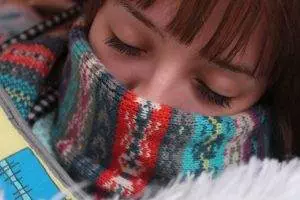
Sneezing, runny nose, nasal congestion, cough? How can you tell if it’s a cold symptom, a flu, COVID-19, mononucleosis, croup, or maybe an allergy? All of these illnesses can cause fatigue and a stuffy nose. The common cold, however, does not cause a high fever, and the cough is usually mild, not a persistent cough. Acupuncture and TCM herbs offer a highly effective way to relieve common cold symptoms.
A cold is a kind of viral infection that affects your upper respiratory tract, centering mostly in the nose and throat. Different viruses can cause the common cold; rhinovirus is the most common kind of cold virus.
You can catch a cold virus when you are near someone else who sneezes or coughs, and you get droplets containing the virus into your own nose, mouth, or eyes, or you touch something they coughed or sneezed on, and then touch your own face.
Young children and people with weakened immune systems are more prone to catching colds, as are people who smoke. You’re more likely to catch a cold if you spend a lot of time in crowded places, like schools, airports, public transportation, etc. More people get colds during the winter, because more people are packed together indoors, but cold-causing viruses are circulating all through the year.
You will start feeling cold symptoms within a few days of being exposed to the virus. Typically, without any medical intervention, a cold will last about a week or ten days. For some people, though, a cold can lead to other, more serious infections, like an ear infection, asthma and wheezing, sinusitis/sinus infection, bronchitis, or even pneumonia.
Cold symptoms aren’t so much caused by the virus, but by the workings of the body’s own immune system to expel the virus. Coughing and a runny nose are the body’s way of getting the virus out of the respiratory system. While the common cold doesn’t necessarily require any medical treatment, it is best to take steps to strengthen your immune system and clear the virus as soon as you can.
Chinese herbs and acupuncture treatment are an excellent way to shorten the duration and lessen the severity of a cold. Regular acupuncture treatment also functions as preventive medicine, so that you and your family don’t catch cold nearly as often.
Top 10 Common Cold Symptoms
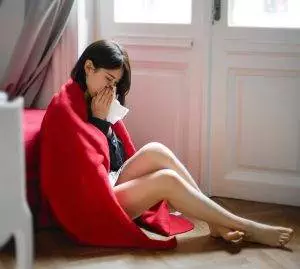
How can you tell if you have a cold or a flu? Usually, cold symptoms are more centered in the nose and throat, and are milder than flu symptoms. A flu is more likely to cause serious fatigue, chills and fever, and body aches than a cold is.
The typical symptoms of common cold include:
- Runny nose, stuffy nose, nasal congestion
- Sneezing
- Sore throat
- Cough
- Post-nasal drip
- Watery eyes
- Headache
- Body aches
- Low grade fever
- Fatigue, feeling tired
Sometimes people differentiate between head cold symptoms and a chest cold. A head cold describes the way most rhinovirus colds manifest in the upper respiratory organs: with a stuffed up nose, sniffling, headaches, and a red, sore throat.
If the cold “moves” down into the chest, causing inflamed bronchial tubes, and mucus production in the lungs, this is called acute bronchitis. This feels more like chest congestion, with a more persistent cough. Once a cold turns into bronchitis, you are more likely to have a serious cough, with or without coughing up phlegm.
How Is the Common Cold Usually Treated?
The accepted wisdom is that there is no cure for a cold; you just have to do whatever you can to make yourself more comfortable while the illness runs its course. Antibiotics only help get rid of bacterial infections. They do not help when you have a viral infection.
While it is true that there is no medication you can take to get rid of a cold, there are many remedies, both traditional home remedies for cough, and popular over-the-counter medicines and health store supplements that claim to take care of your cold symptoms.

Many people swear by things like Vitamin C, Zinc lozenges, or echinacea preparations. Other people will tell you to drink hot honey water and eat chicken soup. All of these natural cold remedies may have some benefits. At least, they don’t do any harm.
Other cold medicines may do more harm than good. Cough suppressants and nasal decongestants actually work against your body’s natural defenses. Your body is producing mucus and the cough reflex in order to expel the virus and keep it out of your lungs. Repressing these natural immune responses can prolong your cold.
Nasal decongestants like Sudafed can cause a fast heart rate and jittery feelings, especially in young children. Cough syrup with antitussive properties, or cough suppressant, can have negative side effects besides just making you drowsy or irritable. Some cough medicines can interact with other medications, making them inappropriate for people who have problems like high blood pressure, enlarged prostate (BPH), or glaucoma.
Trying to power on through your days with the help of OTC cold relief medications, caffeinated drinks, and sugary cough drops, without getting the rest you need, is not a good idea. Getting extra rest and drinking plenty of fluids are definitely tried and true ways to get over your cold.
Consider that acupuncture and herbal medicine developed over centuries of TCM tradition can help address cold symptoms without any side effects, and may help you recover more quickly than rest alone.
TCM for Colds: How to Get Rid of a Cold Fast

In TCM we consider some conditions to be external, meaning that they come from outside the body, in the form of pathogenic factors like heat, cold, wind, and dampness. Based on the environment, and the types of symptoms, we determine whether a cold follows a pattern of a cold-wind type, or a heat-wind type, or sometimes a hot-damp type as might occur during the summertime. An acupuncture practitioner will then base the treatment on the pattern of cold presented.
Acupuncture treatment influences the immune system’s response, and since that is what is actually causing the symptoms of a cold, the use of acupuncture points for cold and sore throat can really have a positive effect on reducing cold symptoms.
Cupping is a TCM modality that may be used to help treat colds and other respiratory conditions. Cupping helps to relieve congestion and gets lymph and blood circulation moving.
When you come in with a cold, your TCM provider will tailor your acupuncture treatment and prepare an herb formula specific to your needs. That said, our patients who have been coming into Art of Wellness for many years know that there is a
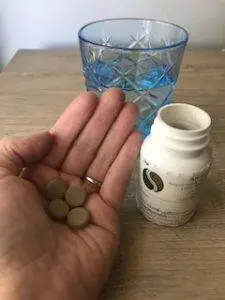
standard formula that is excellent for “knocking out” a cold if you can catch it at the very beginning. Right when you begin to feel that tickle in the back of your throat, that is the time to reach for your supply of Yin Chiao pills!
Ginger tea, made by simply slicing a bit of fresh ginger and steeping it in hot water, is also a great way to stop a cold in its tracks, before it gets worse.
Acupuncture Near Me for Common Cold in Santa Monica, West LA
Making time for regular acupuncture “tune-up” visits can help keep your body and mind balanced and your immune system in good working order. In the ancient TCM tradition, acupuncturists used to treat their patients for free when they caught a cold type illness, because it meant they hadn’t done their job of boosting immunity well enough. Prevention is certainly the best medicine when it comes to colds and flus. When you do begin to feel the first signs of a cold, though, it isn’t too late. Come in for a treatment, or call us at Art of Wellness to order some herbs to be shipped to you. We can help you get over your cold symptoms quickly.
*This article is for education from the perspective of Traditional Chinese Medicine only. The education provided by this article is not approved by FDA to diagnose, prevent, treat and cure human diseases. It should not stop you from consulting with your physician for your medical conditions. Traditional Chinese Medicine is based on Qi, which is an invisible force that usually cannot be observed by modern science. Because science focuses on testing ideas about the natural world with evidence obtained through observation, these aspects of acupuncture can’t be studied by science. Therefore acupuncture and Chinese herbs are often not supported by double-blind, randomized trials, and they are considered alternative medicine therapies in the United States.
How to Treat Celiac Disease With Acupuncture and TCM
By Qineng Tan, L.Ac., Ph.D. & Xiaomei Cai, L.Ac., Ph.D.

Do you have digestive problems like a bloated stomach, diarrhea, and abdominal pain? Unintentional weight loss, fatigue, skin rashes? These can all be signs of Celiac disease. Different from food allergies, Celiac is a serious autoimmune disorder that can lead to malnutrition and other debilitating health problems. TCM herbs and acupuncture treatment offer a good alternative way of managing Celiac disease and gluten intolerance symptoms.
In recent years, you have probably heard a lot of people saying they are switching to a gluten free diet because they have a gluten allergy or gluten intolerance. Sometimes people may just be trying to see if they feel better when they cut out wheat products, or they are going on a low carb diet to help them lose weight. Other people may be experiencing symptoms like diarrhea and nausea and hope that going on an IBS diet will help.
What is gluten? Gluten is a protein that is present in some grains, including wheat, barley, and rye. When a person has Celiac disease, gluten is perceived by the immune system as a dangerous foreign substance, triggering an immune response. Antibodies (white blood cells) are produced as a reaction to gluten entering the body, and the antibodies end up causing inflammation and damage to the inside of the intestinal tract.
This damage to the small intestine is called villous atrophy, and this is what causes inflammation and malabsorption of nutrients, leading to the myriad symptoms of Celiac. Celiac symptoms vary widely, and can include both digestive problems, and other conditions, like anemia, that stem from the lack of proper nourishment to the body.

There is such a thing as a true wheat allergy, which for some people causes respiratory problems like difficulty breathing and nasal congestion, and other allergy symptoms like swelling and itching around the mouth and throat, hives or other itchy skin rashes, and headaches. Wheat allergies are a response to chemical compounds in wheat, which is found in a wide variety of food products. In some cases, exposure to wheat can cause anaphylaxis, which requires emergency medical attention because it can involve trouble breathing and swallowing, chest tightening, throat swelling, dizziness, and fainting.
Some doctors now recognize gluten intolerance or non-celiac gluten sensitivity as a separate condition from Celiac disease. For some people, gluten causes an immune response and symptoms, but not the same kind of damage to the intestines that Celiac does. If gluten intolerance is suspected, then following a gluten free diet for a period of time and noticing if symptoms clear up is usually the recommended course of action.
Celiac disease tends to run in families, and so is considered to be passed genetically. People can begin to show signs of Celiac at any age. It is estimated that at least 1% of the population has Celiac disease, but that number may be significantly higher, as it is still not a very well understood condition. Many people who have Celiac disease are unaware of it, or have been misdiagnosed with other conditions. Researchers believe that the incidence of Celiac disease is increasing worldwide, probably due to some environmental factors.
Acupuncture and TCM herbs provide a holistic way to treat Celiac disease, relieving the painful symptoms and providing detailed guidance for lifestyle and dietary changes that can help people manage Celiac and gluten intolerance. Nutrition is considered to be one of the primary branches of TCM, along with acupuncture and herbs. A TCM practitioner will be able to give you dietary recommendations far beyond just telling you to eat gluten free foods.
Top 10 Celiac Disease Symptoms
People can experience a variety of gluten intolerance symptoms, including digestive problems, allergy symptoms like skin rash, and other symptoms related to nutritional deficiency, like anemia and weight loss. Signs of gluten intolerance may be different in children, who are more susceptible to malnourishment that can lead to a failure to thrive.
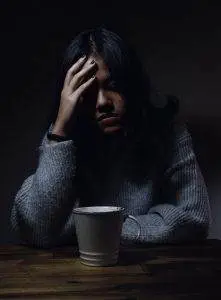
Celiac symptoms include:
- Fatigue
- Weight loss
- Diarrhea, pale colored stools, foul-smelling, fatty, greasy stool
- Abdominal bloating, bloated stomach, gas, stomach pain, abdominal pain
- Nausea, vomiting
- Constipation
- Headache, headaches, migraines, migraine headaches
- Skin rash, mouth ulcers, mouth sores, canker sores
- Neuropathy, numbness or tingling in hands and feet, problems with balance, joint pain
- Cognitive problems, foggy head, difficulty concentrating
Celiac can lead to SIBO, anemia, iron deficiency, loss of bone density (osteoporosis), weak bones, soft bones, bone loss (osteopenia), joint pain, or arthritis. People can also have liver problems, including fatty liver.
Dermatitis herpetiformis is a specific type of skin rash that causes itching and blisters to appear, primarily on the knees, elbows, torso, top of the head, and buttocks.
Women may find that celiac disease affects their hormones, menstrual periods, and can have an impact on fertility, even causing recurrent miscarriages.
Celiac disease can also contribute to infertility and low sperm count in men.
When a child develops celiac disease, the inability to absorb nutrients from food can cause problems with normal growth, such as short stature, delayed puberty, and damage to tooth enamel. Developmental disorders and behavioral issues can also be related to celiac, like ADD/ADHD and irritability.
In extreme cases, Celiac can cause seizures.
Celiac Disease Diagnosis and Treatment
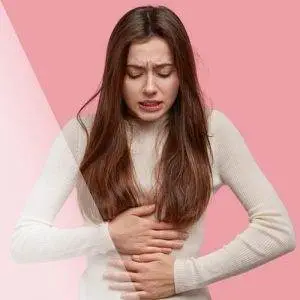
Going through the process of being diagnosed with Celiac disease or gluten intolerance is quite complicated and involves multiple tests. From the medical standpoint, it is best that you do not eliminate gluten or change your diet before the testing, so that it can accurately show how gluten is affecting your immune system and your intestines.
First, you will probably have a blood test that looks for certain antibodies that would indicate an autoimmune reaction to gluten. Some people may test negative for antibodies, and yet still have Celiac, though, so this blood testing is not enough to be conclusive. Genetic testing may be done, which looks for specific antigens to rule out Celiac. If testing shows that a person has antibodies, and they also have a specific type of skin rash (dermatitis herpetiformis), that is usually enough for a doctor to give an official diagnosis of Celiac disease.
Endoscopy is an imaging test which uses a little camera to see if there is damage to the intestinal lining. They will also take some tissue samples from the lining of the intestine to check for inflammation and damage. The results of these tests may lead to a formal Celiac diagnosis. People will often need to have an endoscopy to find out if they have Celiac disease, and then possibly repeated endoscopies to see if the inflammation is getting better or worse.
Sometimes people will try figuring out what is going on themselves with a food sensitivity test or food intolerance test kit that you can do at home and send in for results. Food allergy testing may give you some information as to whether you have a reaction to a specific allergen (egg allergy, milk allergy, peanut allergy, shellfish allergy) or have a food sensitivity, but they cannot tell you if you really have Celiac disease or gut inflammation.
Going through the diagnostic process for autoimmune diseases like Celiac disease can be exhausting in and of itself. Meanwhile, you aren’t yet getting treatment for your symptoms. The only treatment available in conventional medicine for Celiac disease really is to follow a gluten free diet. Most doctors are not able to do much beyond give you a list of foods you shouldn’t eat, or refer you to a dietitian.
TCM has the ability to provide more comprehensive care for people with Celiac disease, and many other autoimmune conditions. Acupuncturists are highly trained professionals when it comes to offering patients detailed guidance for following an effective Celiac disease diet.
Can Acupuncture Help Celiac Disease and Gluten Intolerance?

TCM has more to offer than just acupuncture treatment and herbal medicine. Nutrition is one of core competencies every TCM practitioner must master.
Acupuncture treatment can help relieve digestive symptoms like abdominal pain and bloating, and also have a positive impact on the system malfunctioning that leads to autoimmune reactions. With Chinese herbs, we are able to get very potent nutrients into the body that wouldn’t normally come from food. For people with Celiac, or other problems like food allergies or sensitivities, malnutrition due to malabsorption is a real problem.
A TCM nutrition approach can help restore the body’s health with foods and herbs better than a simple elimination diet for Celiac disease can. An acupuncturist listens carefully to the particular symptoms and sensations you describe. These provide important clues as to which organ systems are involved, and where yin and yang are out of balance. Then TCM provides a framework for tailoring the treatment and food plan for Celiac disease to each individual’s needs.
According to TCM theory, the stomach and spleen are responsible for digesting food. Celiac disease symptoms are, according to a typical TCM diagnosis, related to a spleen deficiency. When Qi in the spleen is weak, the body is not getting the nutrients it needs. Building up the strength of the spleen will often be the focus of the acupuncture portion of the treatment. Herbs and specific nourishing foods will be recommended, which will help anemia and soothe the digestive tract.
Acupuncture Near Me For Celiac Disease, West Los Angeles
Autoimmune diseases like Celiac disease can be especially frustrating because they seem to take over your whole life. Not only physical health, but mental health is compromised. Treatment options are limited. Fortunately, TCM offers a complementary form of medicine that is able to provide multi-faceted care for autoimmune disorders like Celiac, including: Crohn’s disease, Type 1 diabetes, hyperthyroidism, Lupus, rheumatoid arthritis, fibromyalgia, and multiple sclerosis (MS). Acupuncture treatment can help reduce feelings of anxiety and depression as you learn to manage your illness.
If you or someone you know has been suffering from digestive issues, and you suspect it may have something to do with gluten intolerance or Celiac disease, be prepared to go through testing, but also give some thought to adding a TCM provider to your health care team. At Art of Wellness, we have over 35 years of providing excellent care through TCM treatments, including expert nutrition services. It is like getting an acupuncturist and dietitian in one.
*This article is for education from the perspective of Traditional Chinese Medicine only. The education provided by this article is not approved by FDA to diagnose, prevent, treat and cure human diseases. It should not stop you from consulting with your physician for your medical conditions. Traditional Chinese Medicine is based on Qi, which is an invisible force that usually cannot be observed by modern science. Because science focuses on testing ideas about the natural world with evidence obtained through observation, these aspects of acupuncture can’t be studied by science. Therefore acupuncture and Chinese herbs are often not supported by double-blind, randomized trials, and they are considered alternative medicine therapies in the United States.
How to Stop Snoring With Acupuncture and TCM
By Qineng Tan, L.Ac., Ph.D. & Xiaomei Cai, L.Ac., Ph.D.

Have you been told you’re snoring loudly? Do you feel tired even after 8 hours of sleep? Waking up with a dry mouth, feeling tired all the time, and having trouble staying asleep at night are all signs that you might have sleep apnea. Sleep apnea is a sleeping disorder in which normal breathing is interrupted repeatedly. Acupuncture and TCM offer a natural way to treat obstructive sleep apnea, insomnia, fatigue, and other sleep-related problems.
Sleep Apnea (also known as sleep apnoea) is when a person does not breathe normally during sleep. When there is a pause in normal breathing during the night, the body is not getting enough oxygen, and the brain sends an urgent message to start breathing again. The person wakes, so briefly that they usually do not remember it, gasps for air and starts breathing again. Often people do not realize that they are snoring or making snorting or choking sounds while they sleep unless another person tells them it’s happening. Because of this, many cases of sleep apnea go undiagnosed, and people go on feeling fatigued all the time.
While people of any age or gender can experience sleep apnea, it is most common among older men. There are a few different kinds of sleep apnea; the most prevalent type is obstructive sleep apnea (OSA), in which the throat and/or airway is physically obstructed by the positioning of the neck, jaw, and soft tissues of the throat, like the tongue and uvula. OSA is associated with being overweight or obese, because extra weight can affect the musculature of the upper respiratory system. Women who have already gone through menopause are more likely to develop sleep apnea because postmenopausal weight gain is more likely to occur in the upper body than it does prior to menopause. Sleep problems and obesity are related in many ways; getting less sleep or poor quality sleep can cause people to gain weight or have trouble losing weight. People with diabetes and/or metabolic syndrome are also at higher risk for obstructive sleep apnea.
Besides disturbing sleep and causing fatigue, apnea can lead to other serious health conditions, especially cardiovascular problems like high blood pressure, irregular heartbeat, and stroke. Sleep apnea can increase the heart rate and the production of stress hormones. Men with OSA are more likely to experience erectile dysfunction (ED). Lack of quality sleep can also have a negative impact on mental health, contributing to depression, anxiety, and cognitive decline.
The typical treatment for snoring involves the use of a sleep apnea machine, called a CPAP machine (continuous positive air pressure machine), which pushes air into the nose while you sleep, ensuring that the airway stays open and continuously active. This treatment can help people breathe easier throughout the night, but some people may find the machine noisy and uncomfortable.
TCM methods like acupuncture treatment for snoring and sleep apnea offer a way to address these problems at their source holistically, helping people to sleep well and breathe more freely.
Top 3 Types of Sleep Apnea
Sleep apnea causes loss of oxygen due to shallow breathing (hypopnea) and/or interrupted breathing while sleeping. Different types of sleep apnea are classified by their physiological causes:
- Obstructive sleep apnea (OSA) – this is caused by the improper relaxation of the throat muscles while sleeping.
- Central sleep apnea (CSA) – is caused by disordered signalling from the brain to the organs that control breathing.
- Complex sleep apnea – (or treatment emergent sleep apnea) is a combination of both of the above.
Restless legs syndrome (RLS), also known as Willis-Ekbom disease, is a condition wherein a person has an uncontrollable urge to move the legs, or sometimes arms or other parts of the body, accompanied by a sensation of itching, burning, crawling or throbbing. This usually happens when the person is lying in bed, trying to fall asleep. Restless leg syndrome can coexist with OSA, compounding the problem by making it difficult to get to sleep or stay asleep during the night.
Narcolepsy is a sleeping disorder in which overwhelming sleepiness during the daytime causes people to suddenly and uncontrollably fall asleep. Many people who suffer from narcolepsy also have sleep apnea. In this case, the sleep problem is not related to breathing so much as how the brain and body are moving through sleep cycles, like REM sleep. For people who have narcolepsy, treatment with a CPAP machine is often not very helpful.
Sleep apnea or snoring does not seem to be related to other abnormal sleeping behaviors (parasomnia), such as sleepwalking, night terrors, or sleep-related eating.
Top 10 Symptoms of Sleep Apnea
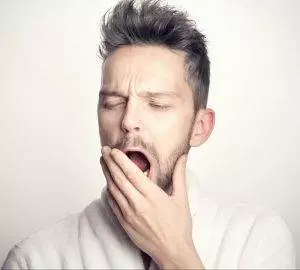
Many people snore and do not realize it. It is important to pay attention to the subtler sleep apnea symptoms. Signs of sleep apnea include:
- Loud snoring
- Interrupted breathing – moments during the night when the person’s breathing actually stops and then starts again
- Gasping for air while sleeping
- Waking up with a dry mouth or sore throat
- Headaches in the morning
- Insomnia, difficulty getting to sleep or staying asleep during the night
- Feeling very sleepy during the daytime (hypersomnia)
- Difficulty paying attention
- Feeling irritable
- Getting up often during the night to urinate (nocturia)
What Causes Snoring?

Sleep apnea is caused either by a physical obstruction of the throat and airways or by problems with brain signals to the breathing apparatus. Not everyone who has sleep apnea snores loudly. On the other hand, not everyone who snores necessarily has sleep apnea. Other reasons people snore may include:
- Congestion of the nose due to a cold or allergies
- In late pregnancy, the growing belly puts upward pressure on the respiratory system
- Sleeping pills, medications that work as relaxants, like Ativan or Valium
- Alcohol consumption
- Anatomy – large tongue or uvula, or swollen tonsils
People with sleep apnea are often advised to sleep on their side rather than on their back, as this helps prevent the obstruction, but it can be difficult for people to control their behavior while sleeping.
Treatment for Sleep Apnea
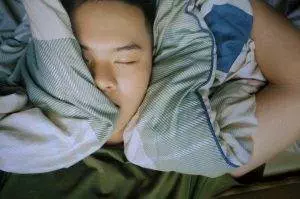
To firmly establish whether a person has sleep apnea, and what type, doctors will often evaluate the situation in a sleep study session. People will spend the night in a sleep center, where their heart and breathing functions are monitored (polysomnography).
CPAP machines are generally considered to be the best care available for sleep apnea. These devices can help stop snoring, allow a person to get more restful sleep, and cut the risks of serious issues like heart disease that are associated with sleep apnea. However, the machine does not actually do anything to improve the weak musculature that causes OSA or the disordered signalling that causes CSA. It is possible to swallow air while breathing with the CPAP machine, which can lead to gas and a bloated stomach. Some people may find the face mask, which must be strapped to the face, uncomfortable. The noise of the machine may be disturbing to the person using it, as well as to the person’s bed partner. It may be difficult for some patients to get used to using the machine, and if they are not using it regularly, they are not getting the health benefits.
There are also some oral appliances available, such as mandibular advancement devices (MAD), which are worn in the mouth to alter the placement of the jaw and tongue in order to keep the airway open during sleep. These can also be effective in terms of helping people breathe better while they sleep. Compared to CPAP, they are quiet, discreet, and cost-effective. Again, the main question is whether a person will be able to tolerate the device; some people may experience toothache or dental pain, TMJ jaw pain, dry mouth, or too much saliva.
Surgery for snoring and sleep apnea is usually only recommended if other methods of treatment have failed. Different procedures involve removing soft tissues (uvula, tonsils, adenoids), or changing the shape of the jaw bones. Small rods may be inserted into the upper palate to help keep the airway open. A device that monitors breathing and stimulates movement of the tongue may be implanted in the chest.
Sometimes people may use melatonin as a natural sleep aid. Melatonin may have a positive impact in terms of helping people fall asleep more easily. It also has strong antioxidant properties, which means it may help with the control of the breathing apparatus and the amount of oxidation a person is getting while sleeping. While it is generally considered safe as a health supplement, melatonin side effects can include problems with dizziness, headaches, and nausea, and it can also be contraindicated with other medications. Melatonin can affect blood coagulation, so it may be unsafe to take if a person is also taking blood thinners, for example.
Can Acupuncture Help Stop Snoring?
According to TCM theory, the spleen and stomach are responsible for transforming nutrients from food and fluids into Qi (life energy), which is then delivered to the heart and lungs. In the TCM view, sleep apnea is often a problem related to phlegm and Qi stagnation, as are many conditions related to fatigue or insomnia. If phlegm builds up and becomes stagnant in the spleen, the lungs cannot get the Qi they need. So, one possible differentiation for sleep apnea is Spleen Deficiency with Qi Stagnation. This condition of dampness and phlegm will often cause people to feel heavy and bloated.
In some cases, too much internal heat contributes to the problem. Snoring, combined with sweating, and waking up with a sore throat, is a sign that we need to clear heat and toxicity from the body.
Sleep disturbed by nightmares is associated with the gallbladder, while difficulty falling asleep is associated with the liver. An acupuncture practitioner will listen carefully to what specific symptoms of sleep apnea each individual patient is experiencing, and tailor the treatment accordingly.
A meta-analysis of over 200 randomized trials involving the use of acupuncture to treat sleep apnea concluded that acupuncture was more effective overall than CPAP treatment, in terms of improving breathing and oxygen levels.
Can Chinese herbs help snoring and sleep apnea? Specific herbs have been shown to help reduce inflammation and improve oxygen levels in patients with sleep apnea. Chinese herbal formulations can help stop snoring and reduce daytime fatigue.
Natural Remedies for Snoring

Acupressure can help snoring and sleep apnea. Since we are trying to clear heat and phlegm from the stomach, spleen, and large intestine, use acupressure points along the Stomach Meridian, which runs down the leg. On the front of the shin, apply pressure, kneading with your thumb, starting to the side of the shin bone a few inches below the knee, then moving down about 3 inches and doing the same thing. Knead each of the four points about 30 times as your move down the leg. If you are aware that one side of the nose is more blocked than the other while you are breathing during the night, practice the acupressure on the opposite leg. For example, if your left nostril is the one that is more stuffed up, do acupressure on the right leg.
Acupuncture Near Me for Snoring
As the population ages, and unfortunately, more people suffer from obesity and metabolic syndrome, sleep apnea is a growing health concern all over the world. Snoring can have a seriously negative impact on quality of life, health, and longevity. Conventional methods of treatment for sleep apnea can be effective, but many people find CPAP uncomfortable and inconvenient for long-term use. If you suspect you may have sleep apnea, or are worried because your partner snores loudly at night and seems to be gasping for air, do not wait to get help. Acupuncture and TCM herbs can help relieve fatigue due to snoring and reduce the risk of more serious problems related to sleep apnea.
*This article is for education from the perspective of Traditional Chinese Medicine only. The education provided by this article is not approved by FDA to diagnose, prevent, treat and cure human diseases. It should not stop you from consulting with your physician for your medical conditions. Traditional Chinese Medicine is based on Qi, which is an invisible force that usually cannot be observed by modern science. Because science focuses on testing ideas about the natural world with evidence obtained through observation, these aspects of acupuncture can’t be studied by science. Therefore acupuncture and Chinese herbs are often not supported by double-blind, randomized trials, and they are considered alternative medicine therapies in the United States.
How to Treat Candida With Acupuncture and TCM
By Xiaomei Cai, L.Ac., Ph.D., & Qineng Tan, L.Ac., Ph.D.
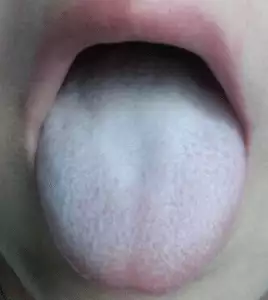
Why do I keep getting yeast infections? White patches on the tongue? It could be the common fungal infection Candida, also known as Candidiasis or a yeast infection. Candida infection can happen to people of all ages and in different parts of the body. Acupuncture and TCM Chinese herbs can help resolve recurrent yeast infections and thrush in the mouth.
Candida albicans, the species of candida fungus that most often causes candidiasis, is a type of yeast that naturally exists in the human body. When the population of candida is kept to normal levels, it causes no harm; in fact, it acts to help digestion and the absorption of nutrients from food. But when proliferation of the fungus gets out of control, candida can cause burning pain, redness and inflammation, and difficulty with normal processes like eating, digestion, and elimination. In extreme cases, candidiasis can cause serious illness.
Candida overgrowth most often happens in the mouth (known as “thrush”), or in the genital area (usually called a “yeast infection”). Thrush in babies’ mouth commonly affects very young infants, creating white or yellow patches or sores in and around the mouth that can affect feeding. Thrush in adults is less common, but can occur when someone’s immune system is weak (common among people living with HIV/AIDS), or if they wear dentures or use medications for dry mouth, causing the typical white patches, cracks in the corners of the lips, and burning sensations in and around the mouth and throat.
Most women have probably experienced a vaginal yeast infection at some point in their lives. This type of candida causes burning and itching in the vulva and vagina along with a white, clumpy discharge. Candidiasis can also affect men, causing an itchy rash on the penis.
Is candida or thrush contagious? It’s rare for a person to “catch” a fungal infection from another person, but it is possible, for example, for a person to pass a yeast infection to his or her partner through sexual contact. It is also possible for a mother to develop thrush on her nipples from nursing her baby who has oral candidiasis.
Candida overgrowth can affect other parts of the body, including the finger or toe nails (candidal paronychia), and especially areas of the skin that tend to be damp and sweaty, like the armpits or the creases around the groin.
In some cases, invasive candidiasis can get deeper into the body, infecting the gastrointestinal system or even getting into the bloodstream, which can lead to infection of various organs, including the eyes, heart or kidneys. This type of candida infection can become serious, causing fever, and even sepsis, which can be fatal.
Candida overgrowth creates different problems for different people. That is why TCM, acupuncture, and herbal medicine provide an excellent way to treat candida. TCM theory of candidiasis treatment allows for a highly individualized approach to each patient, so that we can get rid of yeast infections for good.
Top 5 Types of Candida Infection

Candida overgrowth can occur in different parts of the body. The most common kinds of yeast infection or candida are:
- Oral candidiasis – also known as thrush in mouth, or yeast infection in the mouth. Thrush in babies usually occurs because the infection passes from the mother’s vaginal area to the baby during birth, and the infant’s immune system is not developed enough to fight it. What thrush on tongue looks like: white patches that can be wiped off.
- Vaginal candidiasis – commonly known as a vaginal yeast infection, candidiasis of the female genitals causes redness, burning, and “cottage cheese-like” discharge.
- Candidal balanitis – candida infection of the male genitals happens particularly in uncircumcised men. More recent research has led some medical professionals to believe that fungal infections may cause a prostate problem, infection in prostate, prostatitis symptoms, enlarged prostate symptoms, and symptoms to prostate cancer.
- Cutaneous candidiasis – or yeast infection on skin. Candida can cause diaper rash in babies, and red, itchy, peeling patches in areas where the skin has many folds and creases. Candidiasis can also infect the fingernails, toenails and nail beds.
- Invasive candidiasis – When candida gets into the digestive tract or bloodstream, it can cause a serious systemic infection that affects the blood, heart, brain, esophagus, and/or digestive tract. This happens most often in people with compromised immune systems, especially people with HIV or who are undergoing chemotherapy for cancer.
Candida overgrowth can also lead to symptoms of fatigue, chronic allergies, chronic sinusitis or post-nasal drip. Central nerve damage, constant irritability, and chronic fatigue syndrome are all signs that a person may have a deep candida infection.
What Causes Candida?
Candida yeasts are present in every human body. What causes candidiasis is abnormal fungal overgrowth due to a lack of friendly bacteria or a weakened immune system. Women often get yeast infections during pregnancy because of changes in the balance of bacteria in their pelvic area. Antibiotics, steroids, birth control pills, and chemotherapy drugs can all contribute to candidiasis by affecting the gut flora. Just a few rounds of antibiotics can destroy all of the healthy bacteria we need to maintain proper balance. Personal habits and hygiene mishaps, like wearing too-tight pants or the same sweaty workout clothes all day, can also lead to yeast infections. Food choices can also play an important role in whether or not a person is prone to yeast infections. It may be recommended that people go on a “candida cleanse” or special candida diet to help stop the candida overgrowth.
How Do You Treat Candida?

Often a mild case of candidiasis in the mouth will go away within a few weeks on its own. If oral thrush treatment is needed, a doctor may prescribe antifungal nystatin drops, mouthwash, or lozenges.
Cutaneous candida (skin infection), vaginal yeast infections, and male genital infections will usually be treated with antifungal medications such as Fluconazole, which can be taken orally, or topical antifungal creams like Nystatin.
These antifungals may help to alleviate the symptoms of candidiasis by stopping the yeast overgrowth. However, for many people who experience recurrent yeast infections, they are only a temporary solution. Frequent use can build up an antifungal resistance. When candida keeps coming back, there is surely a deeper cause for the ongoing yeast infections.
Azoles and other types of antifungal medications are used to stop the growth of the candida in patients with invasive candidiasis. Unfortunately, they can also be toxic to other organs, like the kidneys. For people who are already in poor health, these medications may cause more harm.
Acupuncture and TCM provide a method for dealing with candidiasis while improving immune function, and revitalizing the health of the skin, reproductive organs, digestive tract, or whatever parts of the body are affected by candida overgrowth.
How Can Acupuncture Help Candida?
In TCM philosophy, the spleen and stomach play important roles in digestion, especially the transformation of one fluid into another, and the movement of fluids through the digestive and eliminative organs. Basically, in TCM, the spleen is responsible for turning what we eat and drink into healthy blood and Qi (life force energy). When the spleen and stomach are weak and not working well, excess fluid builds up and encourages the candida yeasts to reproduce.
Candida is considered to be caused by spleen/stomach deficiency and dampness. When dampness collects in the pelvic region, it creates phlegm and leads to congestion and heaviness. This is what can lead to vaginal yeast infections or a prostate problem in men.
In other cases, the improper functioning of the stomach causes heat and fire to develop in the upper part of the body, which can cause thrush in the mouth, or the kind of invasive candidiasis that affects the heart.
Your acupuncturist will work to improve spleen and stomach function to restore balance of the intestinal flora with a combination of acupuncture, customized herbs, and a complete nutritional analysis to create an appropriate diet to cleanse candida from the system.
Acupuncture treatment will strengthen and tonify the spleen and other organs. Herbs can be used internally and externally to help relieve candidiasis. TCM formulations that have developed over many centuries are known to have antifungal and antibacterial properties.
Several studies have demonstrated the efficacy of using herbs in external forms for women’s genital infections. Using herbs via steam, hip bath, or douche bypasses the digestive system so that the herbs can directly help to reduce inflammation and discharge.
Top 5 Candida Diet Tips

A TCM practitioner will focus on creating and implementing a food program that helps to clear dampness from the body. Candida infection tends to occur when the body is more acidic. A diet that is high in refined sugars and meats and low in vegetables tends to create a lower PH level (below 7). Eating more dark green leafy vegetables will help to make the body more alkaline. It is also very important to check behavioral habits that might be contributing to the yeast overgrowth.
- Avoid all refined sugars, sweeteners, sweets, and even fruits. These foods all cause the candida yeast to spread more quickly. Stay away from foods with yeasts in them, like bread, crackers, packaged cereals, and pretzels. Vinegar and alcohol should also be cut out of the diet until the situation improves.
- Avoid milk, cheese, eggs, and red meats, and emphasize instead lots of green vegetables. Chlorophyll (the phytonutrient present in all green leaves) is especially helpful for getting rid of candidiasis. Stay away from eating fungi, like mushrooms, and pickled vegetables.
- Eat more warm, cooked foods, especially soups and rice, which are easy to digest. Other helpful foods include orange and yellow winter squashes and daikon radish.
- Use a baking soda solution (1-2% solution) to douche or as a hip bath to help get rid of a vaginal yeast infection.
- Taking a high quality probiotic supplement can help to restore proper balance of the gut flora and control yeast growth.
Be sure to keep the skin in sensitive areas clean and dry, but avoid using harsh soaps or deodorants. Avoid too-hot showers or baths, especially in shared spaces. Always change out of wet bathing suits and workout clothes right away. Wear loose clothing made of natural fibers.
Find Acupuncture Near Me for Candida
It can be very frustrating to suffer with recurrent yeast infections. If you keep getting yeast infections, it may be time to try a different treatment to help get rid of them. New parents who are worried about thrush in babies may find that starting to work with a TCM provider offers a safe, natural alternative to antibiotics and other medications. You may discover that an integrative approach to solving problems with candidiasis works better in the long run than over the counter creams or prescriptions to get rid of candida.
*This article is for education from the perspective of Traditional Chinese Medicine only. The education provided by this article is not approved by FDA to diagnose, prevent, treat and cure human diseases. It should not stop you from consulting with your physician for your medical conditions. Traditional Chinese Medicine is based on Qi, which is an invisible force that usually cannot be observed by modern science. Because science focuses on testing ideas about the natural world with evidence obtained through observation, these aspects of acupuncture can’t be studied by science. Therefore acupuncture and Chinese herbs are often not supported by double-blind, randomized trials, and they are considered alternative medicine therapies in the United States.
How to Treat Hives With Acupuncture and TCM
By Qineng Tan, L.Ac., Ph.D. & Xiaomei Cai, L.Ac., Ph.D.
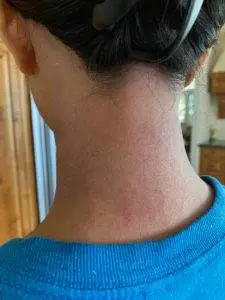
Skin rash with itchy welts or red bumps that seem to appear suddenly, then move to another part of the body, or go away? Hives, also known as urticaria, are caused by a type of allergic reaction that creates a temporary rash or swelling of the skin. TCM and acupuncture have been used for centuries to help relieve hives caused by allergies.
Hives are fairly common, occurring in about 20% of people of all ages. An acute, or short-lived, case of hives may occur because of being exposed to some unusual, new chemical or natural irritant in a person’s environment, maybe in some product, or some pollen or bug. These usually go away quickly, and it may be fairly obvious what it was that caused the outbreak of hives. However, sometimes people develop chronic idiopathic urticaria (CIU), in which a person may break out in hives often on an ongoing basis and have no idea why it keeps happening.
Allergies can manifest in many ways: sometimes causing sneezing, watery eyes, or skin problems. Hives are another way that an allergic reaction can show up. Hives, or urticaria, are distinguishable from other types of skin rash, like dermatitis eczema, or shingles rash, because, unlike other rashes, they do not form fluid-filled bumps or cause dryness, scaliness, or cracking of the skin. Rather, hives are raised welts on the skin that appear red, but then turn white when you press on them; this is known as “blanching.” Hives can look like small, narrow lines, or big, patchy blotches.
Urticaria is related to, and sometimes confused with, angioedema, which is a similar condition, in which deep layers of skin become swollen, often around the eyes and mouth, also due to irritation by some allergen. Angioderma can coexist with hives, and can be more dangerous than hives, if it causes tissues in the throat or tongue to become so swollen that the airway is blocked.
Hives often clear up on their own within a few days or weeks without any treatment. However, some people develop chronic hives, in which the hives rash keeps recurring for weeks or months, or longer. Chronic hives can be a uniquely painful and frustrating condition; never knowing when you might break out into a burning, itchy rash. Hives worse at night or hives worse after sleeping are common experiences for people who suffer from chronic urticaria. Breaking out in hives can make a person feel panic, making it very difficult to get on with daily tasks. Acupuncture treatment can help alleviate the burning and itching of acute hives or chronic hives, and help relieve the allergies, stress, and other underlying conditions that bring them on.

Top 10 Hives Causes or Triggers
In general, what causes hives most of the time is an allergic reaction to some external stimulus. Touching something, eating something, or inhaling something that you are allergic to can cause urticaria to break out on the skin, sometimes briefly, sometimes moving around from one area or the skin to another, or seeming to spread over the skin. Things that can cause hives include:
- Foods, especially those that are well-known allergens like nuts, shellfish, dairy, and eggs, but also fruits, especially citrus fruits
- Contact with certain plants
- Pollen in the environment
- Medications, including antibiotics, OTC pain relievers
- Latex
- Pet dander
- External stimuli from the climate – sun exposure, heat, cold
- Bacterial infections in the body, like strep throat or a UTI
- Viral infections in the body, like colds, hepatitis or mononucleosis (viral hives)
- Blood transfusions
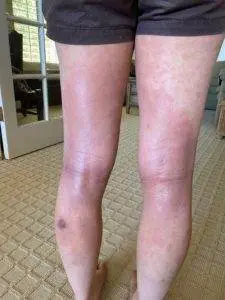
Insect bites or itchy rashes that cause you to scratch at your skin can also cause hives to appear in other areas. Simple pressure on the skin, from sitting or leaning on a patch of skin for a long time, can cause hives. Some people break out in hives when they are under a lot of pressure or emotional stress, even if they are not aware of having allergies or other underlying causes for hives. Sometimes this is called a “stress rash.”
Treatment for Hives
Hives are most commonly treated with antihistamines, which can help relieve itching. Many people experience some type of side effect from taking antihistamines, including: headache, drowsiness, fatigue, and hay fever type symptoms. Some people do get relief from a temporary hives rash after taking Benadryl or something similar. But for others, it may not help, and then doctors often prescribe a corticosteroid as an anti-inflammatory. If steroid treatment for hives does not help, immunosuppressants may be recommended. Depending on the root cause of the hives, these types of pharmacological solutions may or may not work to relieve hives. Acupuncture and TCM treatment focuses on solving the deeper problems that cause hives, without any negative side effects.
How Can Acupuncture Help Hives?

As we have seen, conventional western medicine mostly looks at hives in terms of allergies. But in order to resolve the hives, we have to look more closely at why a person has those allergies. Why are some people affected so strongly by certain foods or certain environmental conditions while other people are not affected at all? We have to consider a person’s constitutional health.
As we have discussed in other articles, in TCM the concept of Wei Qi refers to the body’s protective defenses, the action of which stems mainly from the lungs and the skin. Many types of illness are considered to be related to a weakness or breakdown in the Wei Qi that allows external pathogenic factors to enter the body and take hold. Wind is one such external pathogenic factor. Heat and cold are others. Viral and bacterial infections also find their way into the body when the Wei Qi energy is weakened.
6 Pathogenic Factors According to TCM:
- Wind
- Cold
- Summer Heat
- Dampness
- Dryness
- Fire
Hives come mostly from wind and heat. In TCM, urticaria is known as Feng Zhen Kuai, or “wind rash patch.” Wind describes the nature of urticaria rash in the sense that the hives welts come and go, as if blown about.
When people get hives, it is usually because of one of a few common factors.
- Yin deficiency/Dryness – If the body is too dry, when any allergens get in, there is not enough moisture in the body to wash them out of the system; this causes the breakout.
- Fire/Heat – If there is too much heat, fire, and inflammation in the body, when there is exposure to allergens, the body can’t take any more and will break out.
- Liver stagnation with Heat – When a person is under stress for a long time, it can exacerbate stagnation of Qi in the liver system, which over time causes heat to build up, then the body cannot process little irritations. The liver and kidneys have to do all the work to filter toxins out of the body, but when those organs are overstressed, the body will try to get rid of excess heat through the skin.
Usually, if a person is having chronic hives, it has a lot to do with their food and their habits around their exposure to the elements. For example, in the winter time, in order to be harmonious with the season, the body is meant to experience cold. But many people keep the heater on and keep their environment very warm all the time. This leads to dry air and can cause even people without any allergies to feel itchy. People also tend to take long, hot showers, which can destroy some of the skin’s natural protective layers and cause it to be raw and easily irritated.
In western thought, when a person has a reaction such as hives to certain foods (spicy foods, alcohol), it is thought of as an allergic reaction, but in Chinese medicine we see this as being the body’s reaction to too much heat. If a person already has a fiery constitution, or liver stagnation, and then there are external hot conditions, and hot foods coming in all at once, the internal heat can explode out, creating the burning rash on the skin.
Cupping can be very helpful for treating hives; it exfoliates the skin and helps to draw toxins out. This will help to cool down the hives outbreak. Then we go further with acupuncture and herbs to strengthen the lungs, the liver, and the Wei Qi.
A systematic review of clinical trials studying the use of TCM methods and acupuncture to treat hives, both as an alternative and an adjunct to medication treatment, concluded that acupuncture is a safe and effective way to reduce symptoms of hives or chronic urticaria. Chinese herbs are also well-known for helping to relieve hives.
Top 5 Tips for Hives Relief

How to get rid of hives for good will mean paying attention to what triggers the rash for each individual. To avoid this kind of allergic reaction hives, protect your Wei Qi with healthy habits. Prioritize rest and good nutrition to build up your immunity and protect your lungs and skin.
- Avoid a cold wind blowing on you, whether outside, or from a fan or air conditioner. Dress appropriately; always bring an extra layer so you don’t catch a chill or have a bright sun shining on your skin for a long time when you didn’t expect it.
- Avoid very hot showers, baths, saunas, etc.
- Engage in regular exercise to help boost your blood circulation; walking is always ideal. This will help to reduce stress, as will a meditation practice.
- Get plenty of rest. Good quality sleep is essential to help build up the Wei Qi.
- Avoid foods that are either too hot (spicy or fried, red meats) or too cold (raw foods). No alcohol or coffee. These triggering foods and beverages can really make the hives worse. Drink more water to eliminate the dryness in the body.
If a patient is having trouble figuring out what it is that is causing his or her hives breakouts, a TCM provider may be able to find the underlying reason behind the rash.
Acupuncture Near Me for Hives
People of all ages can receive acupuncture treatment for hives and allergies like hay fever. The doctors at Art of Wellness have been helping people get relief from allergies and itchy skin conditions for over three decades. We can provide help for children with hives with herbs and acupuncture. If you or someone you love is suffering from hives, please consider giving TCM and herbs a try.
*This article is for education from the perspective of Traditional Chinese Medicine only. The education provided by this article is not approved by FDA to diagnose, prevent, treat and cure human diseases. It should not stop you from consulting with your physician for your medical conditions. Traditional Chinese Medicine is based on Qi, which is an invisible force that usually cannot be observed by modern science. Because science focuses on testing ideas about the natural world with evidence obtained through observation, these aspects of acupuncture can’t be studied by science. Therefore acupuncture and Chinese herbs are often not supported by double-blind, randomized trials, and they are considered alternative medicine therapies in the United States.